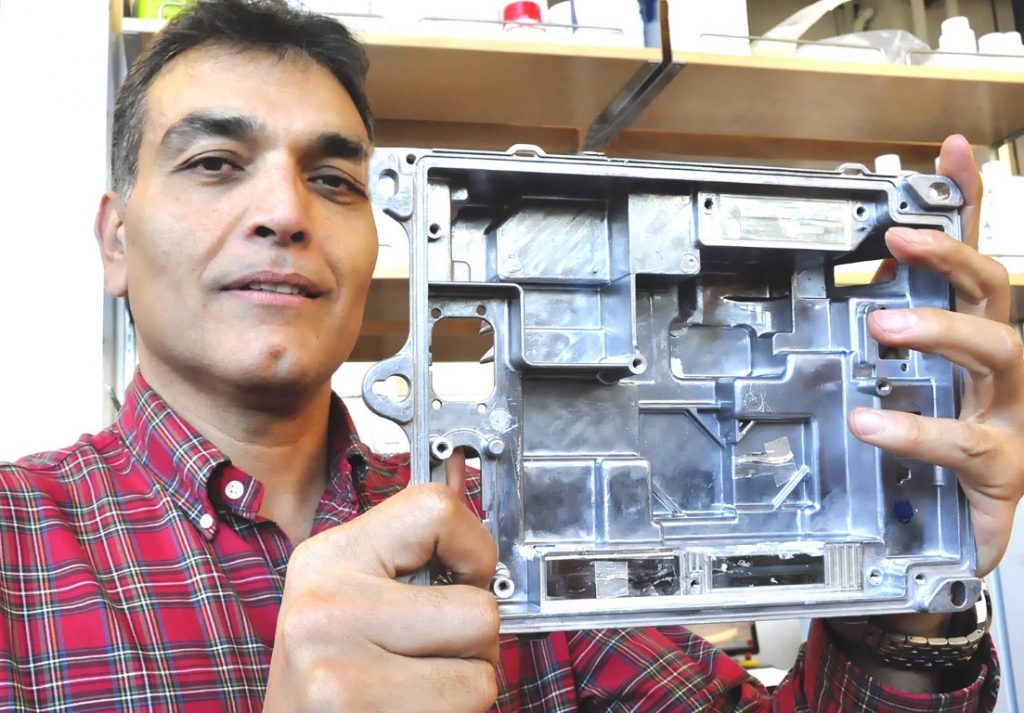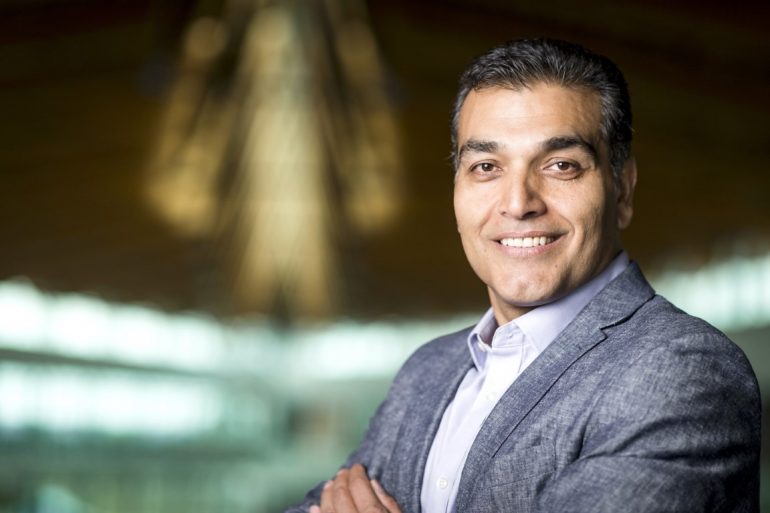By Marianne Meadahl
Simon Fraser University professor Majid Bahrami sees excellent promise in clean technologies that will help reduce the stress on the planet’s natural resources as our population grows. A Professor of Mechanical Engineering and Tier 1 Canada Research Chair in Alternative Energy Conversion Systems at SFU, he is a Fellow of the Canadian Academy of Engineers (FCAE) and the American Society of Mechanical Engineers (FASME). Bahrami champions interdisciplinary, collaborative research in multitudes of sustainable clean energy systems, including: harvesting and transforming low-grade heat for sustainable air conditioning, thermal energy storage, desalination, heat pump systems and dehumidification for applications in automotive, agri-food, sustainable city, and thermal hybrid microgrids. He has a strong track record in successful collaboration with national and international research institutes and industry. He formed two start-ups; won national and international research and innovation awards; published eight patents and 300+ publications; and supervised 120+ highly qualified personnel, including six professors.
Majid Bahrami supports equipping students with the training and skills needed to advance our sustainable future. For those aiming for a successful career after graduation, SFU mechatronic systems engineers are qualified to work in many traditional electrical, mechanical, computer, and software engineering areas. Graduates will also work in growing industries and job markets for engineers who understand and work across multiple disciplines.


Bahrami recently received $1.6 million from the Natural Sciences and Energy Research Council of Canada (NSERC), complemented with an additional support of $1 million from MITACS through its CREATE fund, to spearhead a new national research and training program, starting in September 2021, called the Hybrid Thermal Electric Microgrid (HyTEM) program.
These microgrids enable the integration of distributed energy resources (DERs) into electric and thermal networks, so they can work in harmony based on demand and supply patterns. The objective is to develop both “stand-alone microgrids,” where there is no connection to an integrated network, for example, in remote, off-grid communities, as well as “systems of microgrids,” where seamless, uninterrupted integration with electric and thermal networks is desired.
HyTEM offers a holistic training that covers engineering as well as business, techno-economical, environmental, social, and policymaking aspects. In addition to developing technologies, trainees will be trained to navigate complex policies and regulations and communicate their findings to policymakers and the public, the skills that are largely missing in engineering programs in Canada.
SFU will lead the six-year program, which will draw current and future senior undergraduates, graduates, and post-graduate trainees from SFU and partnering universities. Collaborators engaged in HyTEM research and training include 15 leading national and international research centers, numerous industrial partners, and several NGOs. Trainee internship is a significant element of the program.
“To facilitate Canada’s transition toward energy sustainability, the HyTEM will provide the training needed to advance the research and development of new, flexible hybrid microgrids,” says Bahrami.
The HyTEM program, supported by several partner universities, aims to become a world-class training program to serve the pressing need for high-quality personnel (HQPs) with interdisciplinary skills and knowledge to integrate and use DERs in hybrid microgrids.
While electric grids have recently been integrating more DERs—hydro, solar, wind, and bioenergy—the heating of buildings, which accounts for about 20 percent of the country’s energy use and emissions, is still primarily done by burning fossil fuels.
“Currently, transition to a fully-electric heating system is not feasible as the existing grid cannot cope with an all-electric heating load, and ever-increasing demands for electrification of the transport sector,” Bahrami notes.
In addition to developing technologies, the HyTEM will provide training to navigate complex local and international contexts, policies, regulations, business development, and entrepreneurship.
“It will advance trainees to communicate their findings to policymakers and the public—skills,” he notes. “That is largely missing in Canada’s engineering programs. A solid understanding of these contexts is critical to mobilize technical innovations and penetrate the market effectively,” says Bahrami.
The research will also develop stand-alone microgrids to service regions with no connection to an integrated network, as in mining sites and northern, indigenous, and off-grid communities. It will also create microgrids systems, where on-demand and seamless, uninterrupted integration with electric and thermal networks is desired.
In addition to the new skills training program and related research, Bahrami advances other sustainable energy research, including developing the next generation of cost-effective, high-power-density fuel cell membrane electrode assembly for heavy-duty zero-emission vehicles.
Together with SFU Surrey MSE professor Erik Kjeang, and Ballard Fuel Systems Shanna Knights, Bahrami recently received $300,000 towards commercialization efforts from Innovate BC, through its Ignite program, to continue their work this area.
As founder and director of SFU’s Laboratory of Alternative Energy Conversion, his research group studies and continues to develop clean and sustainable energy projects such as fuel cells, refrigeration, and microelectronics cooling technologies. Bahrami has championed interdisciplinary, collaborative research in multitudes of sustainable clean energy systems: harvesting and transforming low-grade heat for sustainable air conditioning, thermal energy storage, desalination, heat pump systems, and dehumidification for automotive, agri-food, sustainable city, and thermal hybrid applications microgrids.
Bahrami, whose collaborations include national and international research institutes and industry, is the recipient of several research and innovation awards, including a 2016 Canada Clean50 Award.



